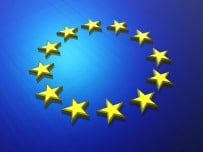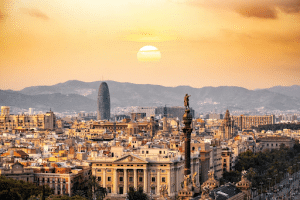Latvia joins the Eurozone
Latvia has become the 18th member of the Eurozone after joining on the second day of the New Year.
The country is located in the Baltic Sea and was previously part of the Soviet republic. It still depends heavily on Russia, but by adopting the Euro as its new currency there are hopes to strengthen links with the West and reduce Russian reliance.
Olli Rehn, an EU commissioner said that Latvia’s induction in the Eurozone marked “the completion of [the country’s] journey back to the political and economic heart of our continent”. After the economic crisis threatened Latvia with collapse in 2008, the country made an incredible turn around and is now the fastest-growing economy in the EU.
The fact that the country has met the stringent criteria to enter the single currency, which includes low public debt, low inflation, and long-term interest rates, is a testament to Latvia’s strength.
Implementing the Euro has been welcomed by the Latvian government and most business owners, with the general attitude optimistic that the change will attract more foreign investment and improve the country’s credit rating. The Latvian Prime Minister Valdis Dombrovskis said “It’s a big opportunity for Latvia’s economic development”.
Ilmars Rimsevics, governor of the Latvian central bank, said that the”Euro brings stability and certainty, definitely attracting investment, so new jobs, new taxes and so on. So being in the second largest currency union I think will definitely mean more popularity.”
Despite this, opinion polls projected that over half of Latvian residents were against the Euro. Many people are unhappy with losing the traditional lats currency and are concerned that prices will rise from the New Year.
One of the major benefits for Latvia on joining the Eurozone is bringing the country closer to the West and opening up access to the European markets. Latvia has close economic links to Russia, and while the Russian export market and banking system will remain an important connection Latvia, the Eurozone places the country more centrally in European trading.




